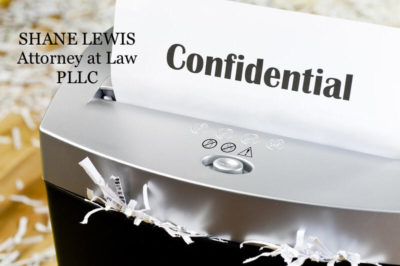Erase Or Seal Your Criminal Record
(Non Disclosure vs. Expunction)
When charged with a crime, leaving your aggravations in the past is the foremost concern. You will have a criminal record even if your case has been disposed, dismissed or dropped, making employment difficult to come by where background checks are protocol.
There are two avenues for clearing your record in the state of Texas: Expunctions and Non-disclosures. Eligibility for one of the two options depends on the outcome of your arrest and on certain requirements that need to be met for each alternative.

Expunctions
Expunctions serve to completely eradicate your criminal record, legally permitting you the denial of ever having been arrested for or charged with a crime. Situations in which eligibility for an expunction occur include:
- Being found not guilty
- Dismissal of your criminal case
- Being arrested but not charged
- Completing deferred disposition for a Class C misdemeanor
Non-disclosures
Non-disclosures seal your record but, do not completely wipe it clean. Government agencies and law enforcement officials can access your record but, cannot share it with a third party. Like an expunction, you are still able to legally deny the arrest, making applications for housing and employment an easier process. Most misdemeanor charges are fit for non-disclosure upon completion of deferred adjudication, however, there is often a waiting period of at least two years.
Choosing an attorney who is familiar with the stipulations involved in record erasing and sealing will make the disappearance of your charge prompt and painless. Contact Shane Lewis to see if you are eligible for expungement or non-disclosure.
